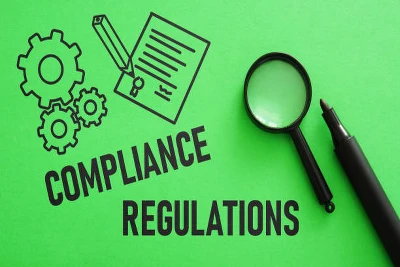Course Overview
The Machine Learning Applications in Actuarial Science Training Course explores how advanced machine learning (ML) techniques can enhance actuarial modeling, risk assessment, and predictive analytics. Participants will learn how to integrate ML algorithms into traditional actuarial workflows, improving pricing models, claims forecasting, and risk management. This hands-on course will focus on applying Python, R, and other data science tools to actuarial datasets.
Course Duration
5 Days
Target Audience
-
Actuaries and actuarial analysts
-
Insurance data scientists and risk analysts
-
Financial modelers and statisticians
-
Professionals in underwriting, claims, and fraud detection
-
InsurTech and data analytics professionals
Personal Impact
Participants will:
-
Develop a strong foundation in applying ML techniques to actuarial science.
-
Gain hands-on experience with machine learning models for risk prediction.
-
Enhance their ability to automate actuarial analysis and forecasting.
-
Improve decision-making with data-driven actuarial insights.
-
Stay ahead in the evolving field of InsurTech and AI-driven analytics.
Organizational Impact
Organizations will benefit from:
-
Improved actuarial modeling accuracy through machine learning.
-
Enhanced risk assessment and fraud detection capabilities.
-
Increased efficiency in claims prediction and underwriting automation.
-
Better decision-making through advanced data analytics.
-
Stronger competitive advantage in the insurance industry.
Course Outline
Course Objectives
By the end of this course, participants will be able to:
-
Apply machine learning techniques to actuarial risk assessment.
-
Build predictive models for insurance pricing and claims forecasting.
-
Utilize Python and R for actuarial data processing and visualization.
-
Implement ML-driven fraud detection and anomaly detection systems.
-
Optimize underwriting and loss reserving with data-driven insights.
Course Modules
Course Outline
Module 1: Introduction to Machine Learning for Actuarial Science
-
Topics Covered:
-
Overview of machine learning and its applications in actuarial science
-
Data preparation and feature engineering for actuarial datasets
-
Supervised vs. unsupervised learning in insurance modeling
-
Introduction to Python/R for actuarial data analysis
-
-
Case Study: Identifying risk patterns using ML in insurance data
Module 2: Predictive Modeling for Insurance Pricing and Underwriting
-
Topics Covered:
-
Building predictive models for policy pricing
-
Applying linear regression, decision trees, and ensemble methods
-
Risk classification using logistic regression and random forests
-
Evaluating model performance: accuracy, precision, recall
-
-
Case Study: Developing a predictive pricing model for insurance products
Module 3: Machine Learning in Claims Forecasting and Fraud Detection
-
Topics Covered:
-
Time series forecasting for claims frequency and severity
-
Anomaly detection in claims processing using ML
-
Fraud detection techniques: supervised vs. unsupervised approaches
-
Deploying machine learning models for real-time fraud prevention
-
-
Case Study: Building a claims prediction and fraud detection model
Module 4: Actuarial Risk Management and Loss Reserving with ML
-
Topics Covered:
-
Machine learning applications in loss reserving
-
Monte Carlo simulations and risk modeling
-
AI-driven catastrophe modeling for insurance
-
Model explainability and regulatory compliance in actuarial ML
-
-
Case Study: Using ML for loss reserving and solvency analysis
Module 5: Advanced Topics and Future Trends in Actuarial ML
-
Topics Covered:
-
Deep learning applications in actuarial science
-
AI-driven automation in actuarial workflows
-
Ethical considerations and bias in ML models
-
The future of InsurTech: AI, blockchain, and big data analytics
-
-
Real-Life Project: Implementing an ML-driven actuarial risk model
Related Courses
Course Administration Details
Methodology
These instructor-led training sessions are delivered using a blended learning approach and include presentations, guided practical exercises, web-based tutorials, and group work. Our facilitators are seasoned industry experts with years of experience as professionals and trainers in these fields. All facilitation and course materials are offered in English. Participants should be reasonably proficient in the language.
Accreditation
Upon successful completion of this training, participants will be issued an Indepth Research Institute (IRES) certificate certified by the National Industrial Training Authority (NITA).
Training Venue
The training will be held at IRES Training Centre. The course fee covers the course tuition, training materials, two break refreshments, and lunch. All participants will additionally cater to their travel expenses, visa application, insurance, and other personal expenses.
Accommodation and Airport Transfer
Accommodation and Airport Transfer are arranged upon request. For reservations contact the Training Officer.
Tailor-Made
This training can also be customized to suit the needs of your institution upon request. You can have it delivered in our IRES Training Centre or at a convenient location. For further inquiries, please contact us on:
Payment
Payment should be transferred to the IRES account through a bank on or before the start of the course. Send proof of payment to [email protected]
Click here to register for this course.
Register NowCustomized Schedule is available for all courses irrespective of dates on the Calendar. Please get in touch with us for details.
Customize AttendanceDo you need more information on our courses? Talk to us.

















